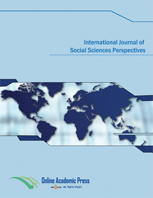Modelling technical efficiency of health systems in SADC
DOI:
https://doi.org/10.33094/ijssp.v15i1.1975Keywords:
DEA, Health system, SADC, Technical efficiency, Tobit regression.Abstract
Efficiency is the application of resources in a way that maximizes intended results. Policymakers around the world are prioritising health system efficiency as nations strive for universal health coverage. The study used the data envelopment analysis and the Tobit regression approach, the current study evaluated the technical efficiency of the health care system and its determinants. The study established that the average efficiency of the SADC countries is 78 percent signifying high levels of inefficiencies. Further the study found that the most efficient countries were Angola, Botswana, Eswatini, Mauritius, Mozambique, and Malawi. The number of practitioners i.e. physicians and nurses, primary school graduation rates, and national income all have a beneficial impact on the efficiency of the health system. The use of nitrous oxide in agriculture and vulnerable employment have a negative impact on technical efficiency. The study recommends that SADC countries should improve on resource use to improve on technical efficiency, train more doctors, nurses, and other medical professionals. Additionally, nations should implement pro-growth policies to boost revenue to capacitate their health systems with beds and other requisite equipment.




